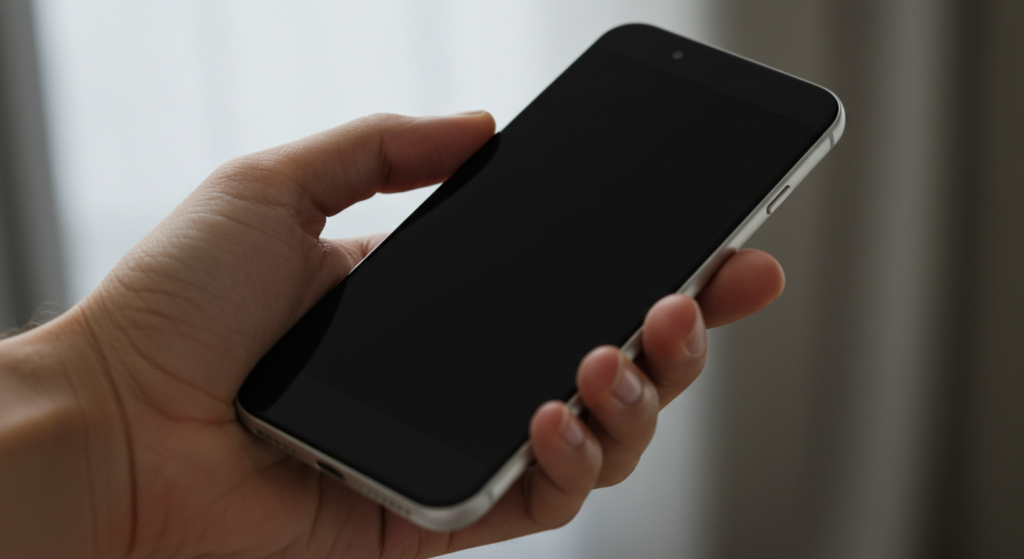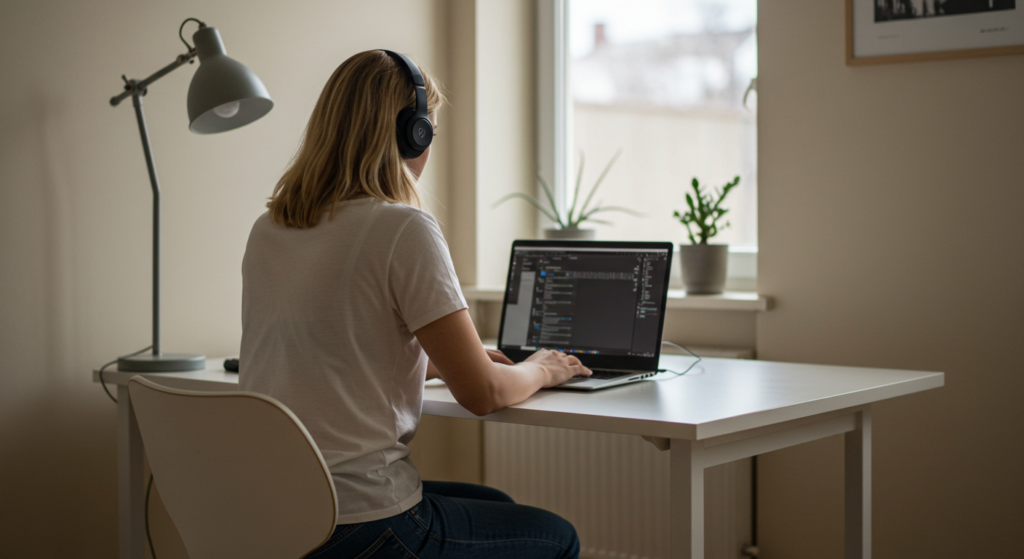Whether you’re navigating remote work, managing household responsibilities, or balancing both, staying focused at home can feel like an uphill battle. After all, distractions lurk in every corner, and these can come in different forms, ranging from smartphone notifications to the allure of a comfy bed. So, keep reading to learn the top tips to avoid distractions when working at home.
5 Tips to Help Avoid Distractions When Working at Home
The following list shares five strategies to help foster focus and avoid distractions while working at home. These tips offer a blend of practical advice and subtle insights, promoting small yet deliberate shifts in your work routine to improve concentration amid the unpredictability of home life.
1. Plan the Day Ahead
Planning the day ahead can help you avoid distractions when working from home. Doing so enhances concentration by proactively minimizing cognitive load. Pre-planning known tasks the night before can aid in reducing mental effort required for frequent decision-making during work hours.
Strategic planning on how to deal with tomorrow’s tasks helps free up working memory and attentional resources, allowing you to proactively avoid distractions while remotely working at home. Deciding in advance what tasks to prioritize reduces mental clutter helps the mind concentrate on work rather than being consumed by instant demands.
Kuniyoshi L Sakai, a senior author of the College of Art and Science & Graduate School of Arts and Sciences at the University of Tokyo, along with his Sakai Lab members, investigated how pre-planning through writing can affect neuronal activity. Mr. Sakai and his coworkers found that the study participants who used notebooks, whether digital or paper, had an increase in brain functions that helped in thinking, learning, and perception.
Like with other practices to avoid distractions when working from home, planning the day ahead still requires discipline to turn it into a habit. So, exercising this activity every day can turn it into a routine, promoting productivity and avoiding interruptions while at home.
2. Turn Off Notifications

We live in a world where every notification that pops up on our screens aim to capture our attention. Perhaps you’re working on a project with a tight deadline and then your smartphone receives a notification. The next thing you know is that you’re 30 minutes into doom scrolling social media.
Don’t let your mind wander into something unproductive by turning off notifications on your phone, PC, and other devices. Notifications, regardless of the source, can stimulate the brain to automatically draw your attention away from tasks. Even seemingly small notifications, such as the doorbell, can spiral into various other less important actions.
By eliminating notifications, you can proactively reduce the frequency of attentional shifts. Doing so creates an environment that’s conducive for sustained attention. A deeper cognitive processing and enhanced task performance are the typical results yielded from uninterrupted focus.
3. Take Breaks
Although it may sound counterintuitive, taking breaks is essential for enhancing focus and avoiding distractions when working from home. Although the brain can fire thousands if not millions of neurons to activate various functions, its sustained attention is limited. Additionally, maintaining significant focus for long periods can lead to mental fatigue, diminishing your ability to concentrate effectively.
Taking meaningful breaks can help boost focus and improve your ability to combat distractions while at home. Note that the keyword is “meaningful,” which means that your free time shouldn’t typically consist of absorbing random content on the Internet.
Some examples of meaningful breaks include the following:
- Meditate
- Take a walk
- Daydream (without using screens)
- Stretch
- Talk to family and friends
- Prepare a healthy meal or snack
- Dance
Remember, some of these meaningful breaks can still snowball into becoming distractions. For example, cleaning and organizing your workspace can help promote focus. However, this activity can turn into a full-blown spring cleaning event that involves the entire home.
So, consider setting up a timer that notifies you when to stop the break and return to work. The Pomodoro Technique is a great way to balance work and break times, ensuring tasks are done while keeping your mind as distraction-free as possible.
When in doubt, remember what self-care & personal development advocate Izey Victoria Odiase said: “Relax, recharge and reflect. Sometimes it’s OK to do nothing.”
4. Use Noise-Canceling Headphones

Not everyone has the luxury of working in a relatively quiet environment, even when you’re at home. A good pair of noise-canceling headphones can help mitigate this concern. These devices generally use active noise cancellation (ANC) technology to minimize environmental sounds. Pair that with some good focus music, and you may find yourself working non-stop (but don’t forget to take breaks).
One study at the University of Central Florida identified how music affects the different lobes of the brain. One example is the putamen, the part of the brain that processes rhythm and regulates body movement and coordination. It then releases dopamine, a chemical messenger known for its addictive properties that control mood and feelings of pleasure.
However, keep in mind that the type of music can affect focus. According to a 2007 Stanford University research, classical music is generally an ideal choice when aiming to improve focus and avoid distractions. Nonetheless, various types of music affect different people dissimilarly. You might even be the type of person who gains concentration when listening to heavy metal music.
5. Sleep
It’s safe to say that many people have experienced getting up on the wrong side of the bed due to not having enough sleep. Apart from not having enough rest, the lack of sleep can interfere with various cognitive functions, including attention, concentration, and decision-making.
The National Heart, Lung, and Blood Institute recommends at least 7 hours of sleep per night to prevent health issues. Having less sleep than the recommended number of hours may also result in a decline in cognitive functions, including focus. It can also mean that you’ll become more susceptible to distractions than normal.
Therefore, set and adhere to a sleeping schedule. If you go to bed at 10 PM today, then ensure that you’ll be in bed at the same time every day, which includes the weekends. Also, avoid rummaging through your phone before going to sleep to keep your mind distraction-free.
Aside from waking up well-rested and feeling like you’re ready to take on the day’s challenges, having a healthy sleeping schedule may promote other health benefits, including the following:
- Reduce the risks of obesity, stroke, and high blood pressure
- Reduces stress and, by extension, stress-related activities like overeating
- Improves the body’s ability to respond to insulin
- Improves the body’s immune responses to certain ailments, such as colds





